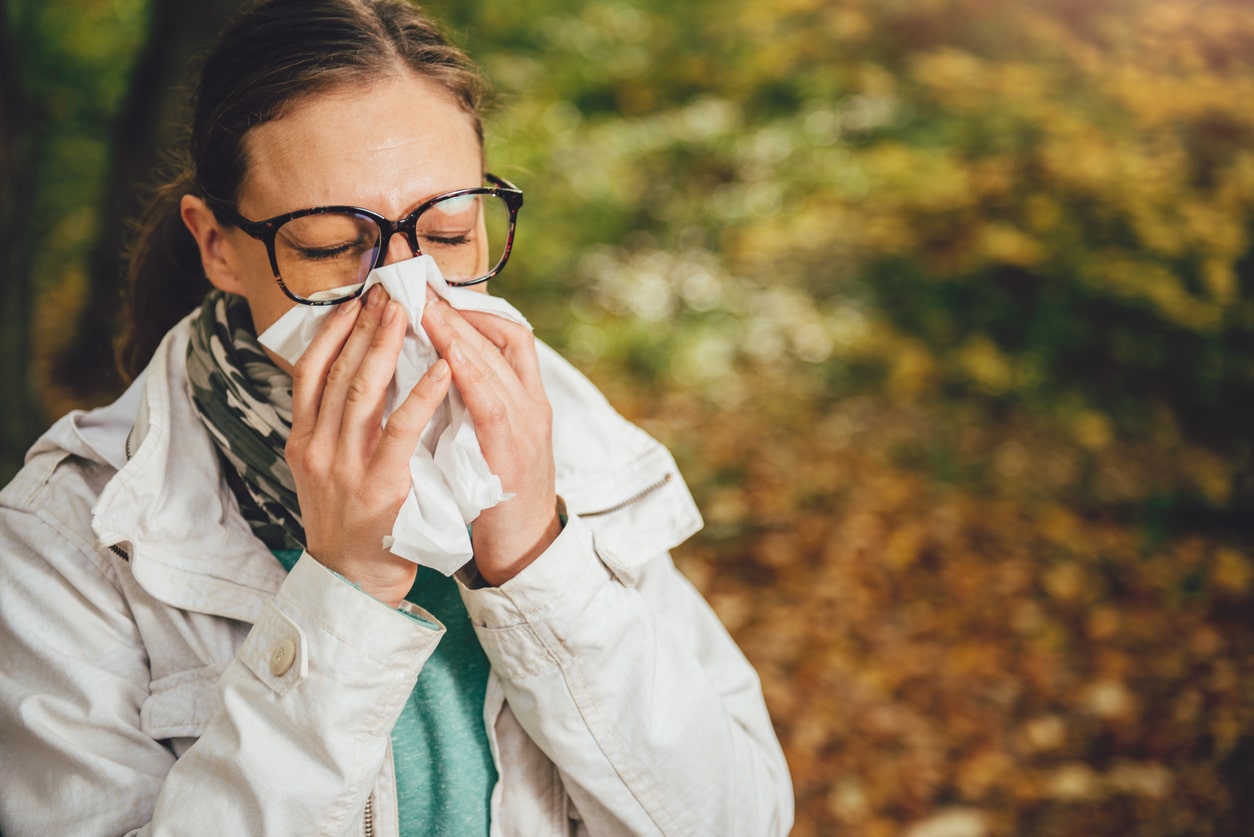With the crisp autumn air and changing leaves, it’s the ideal time to get outdoors and explore the beautiful trails around Buffumville Lake or head out for a backpacking hiking trip. However, for those who struggle with environmental allergies, the cool fall air can bring more than just colorful foliage—it can also stir up allergy symptoms.
How Can Allergies Affect My Hike?

Approximately 24 million people in the U.S. have environmental allergies. If you’re sensitive to environmental allergens like pollen and mold, hiking can cause a range of symptoms including but not limited to:
- Runny or stuffy nose
- Coughing
- Fatigue
- Postnasal drip
- Dark circles under the eyes
- Sneezing
- Hives
- Difficulty breathing
When your symptoms are severe, managing your allergies is essential for an enjoyable hiking experience this season.
Tips to Manage Your Allergies
Whether your allergies are mild or severe, you can use three excellent strategies to make the most of your autumn hikes.
1. Keep an Eye on Pollen Levels
Pollen counts vary widely depending on the day, so checking the forecast before heading out can save you a lot of discomfort. Many weather apps and websites offer daily pollen reports, allowing you to time your hike for when counts are lower. If levels are high, try rescheduling your hike for another day.
2. Choose Clear Trails
Some trails are more allergy-friendly than others. Dense, overgrown paths tend to shroud you in pollen and allergens, while wider, well-maintained trails can reduce your risk of contact. Opt for scenic routes that offer open views and less foliage to brush against while walking. If you prefer dense hiking paths, opt for long sleeves and pants to help prevent allergens from settling on your skin and causing a reaction.
3. Consider Medication or Immunotherapy
Evenwith careful planning, allergens can still sneak up on you during a hike. Bringing along your go-to allergy medications—whether that’s antihistamines, nasal sprays or eye drops—can help you stay ahead of any flare-ups.
If your allergies are severe,it might be worth exploring longer-term solutions like immunotherapy. This treatment works by exposing your body to small amounts of the allergens causing your symptoms, helping you build up a tolerance over time. Many patients start noticing improvements within the first year, with more substantial relief after three to five years of continued treatment.
Enjoy the Outdoors Without Worry
By following a few allergen avoidance tips and considering more permanent options like immunotherapy, you can take control of your allergies and get back to enjoying the great outdoors. Contact ENT Associates of Worcester today to learn more about your allergy management options.